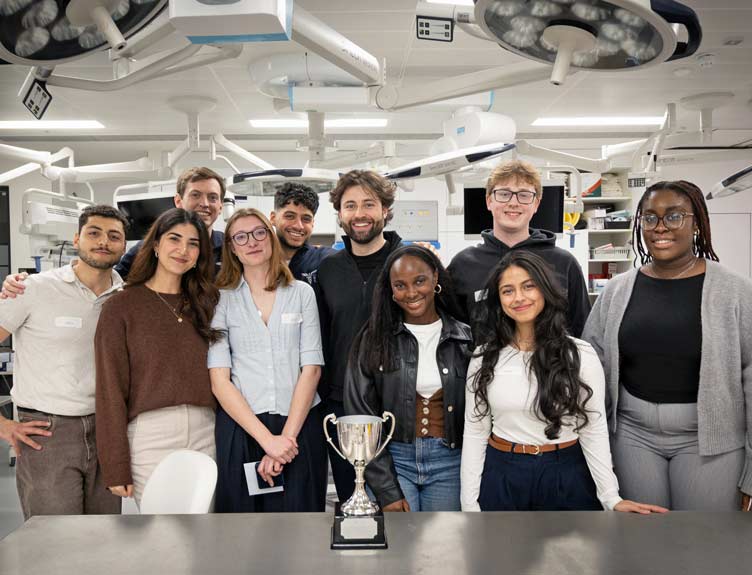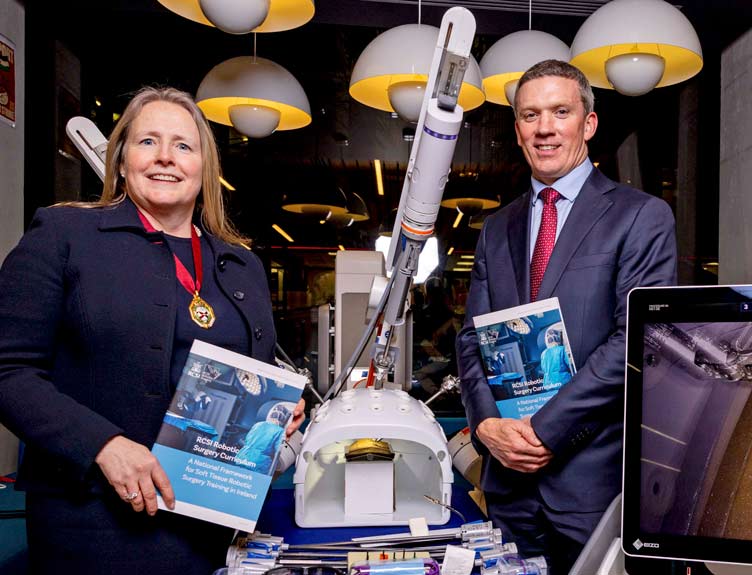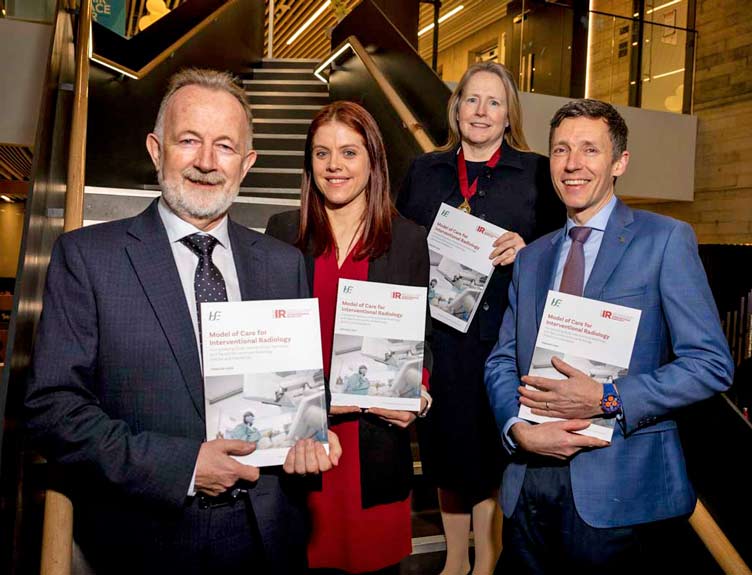Impact of COVID-19 on surgical services detailed in new NCPS report
There were 17% fewer emergency surgeries and 30% fewer elective surgeries performed during the COVID-19 pandemic, according to a new report published by the RCSI National Clinical Programme in Surgery (NCPS).
The most significant reduction in surgical discharges occurred in April and May 2020, dropping to 34.7% of 2019 average monthly volumes.
The report, which examines the impact of COVID-19 on surgical activity in Ireland, also details the impact of the pandemic on waiting lists, showing a 153% increase from April 2020 to April 2021 in the number of surgical patients waiting longer than 12 months for their procedures. The total surgical outpatient waiting list increased by 15%.
General surgery is the specialty that accounts for the highest number of patients on waiting lists (31,517 patients), followed by orthopaedics (10,393) and urology (9,797). As of April 2021, 27.1% of 76,949 cases on the waiting list for inpatient care, day cases and endoscopies were deemed urgent.
Patient access to urgent ear, nose and throat (ENT) surgery was significantly curtailed, resulting in over 100,000 patients now waiting for their first specialist appointment.
System-wide response
In March and April 2020, when it was unclear whether any functioning surgical activity would be possible, NCPS developed a document to assist in planning the system-wide response to the pandemic in an attempt to maintain surgical services during the emergency phase.
Comprehensive guidance was provided to surgical teams, including recommendations on actions to maintain surgical capacity during an outbreak and actions to allow for activity to resume when an outbreak is reducing.
A care pathway for surgical patient triage and treatment during the pandemic was defined and a GP-Surgeon Connect service which allowed GPs to rapidly connect with surgical experts, resulting in a greater number of patients being managed in the community.
RCSI President Professor Ronan O’Connell said: “Surgeons have responded to the challenges posed by the pandemic with collegiality, innovation and a relentless commitment to delivering safe care. From the outset, the College and the Clinical Programmes sought to understand and respond to the challenges faced by surgeons in continuing to provide care and stay safe. A number of significant interventions were developed and many of these, including virtual out-patient consultations and community based care, will remain.”
NCPS Co-Lead Professor Deborah McNamara said: “It is important to remember how little we knew about COVID and its duration in early 2020. Italian hospitals were overrun, with inadequate ventilators and ITU beds. Reports indicated high postoperative mortality among surgical patients who acquired COVID-19, raising significant concerns about patient safety. As a result, deferral of non-essential surgery was uniformly advised. The waiting lists we see today are the consequence of that deferral. We now need to increase surgical activity across the health service to meet the needs of these patients.”
Addressing reforms in the delivery of surgical care, Mr Kenneth Mealy, Co-Lead, NCPS said: “The pandemic has exacerbated what were already unstainable waiting lists. The HSE must act to immediately protect capacity for scheduled surgery. RCSI and the Irish surgical community will work with the HSE and hospital managers to maximise the use of surgical capacity, ensuring that patients have swifter access to care, once that capacity is ring-fenced.”
About the report
This report has been published by the RCSI National Clinical Programme in Surgery (NCPS) and has been developed by the Co-Leads and Specialty Advisors with support from the National Clinical Programme for Trauma and Orthopaedic Surgery. You can download a copy of the report here.
The National Clinical Programme for Trauma and Orthopaedic Surgery will publish a report on the impact of COVID-19 on the provision of the trauma and orthopaedics in Ireland later this month.



